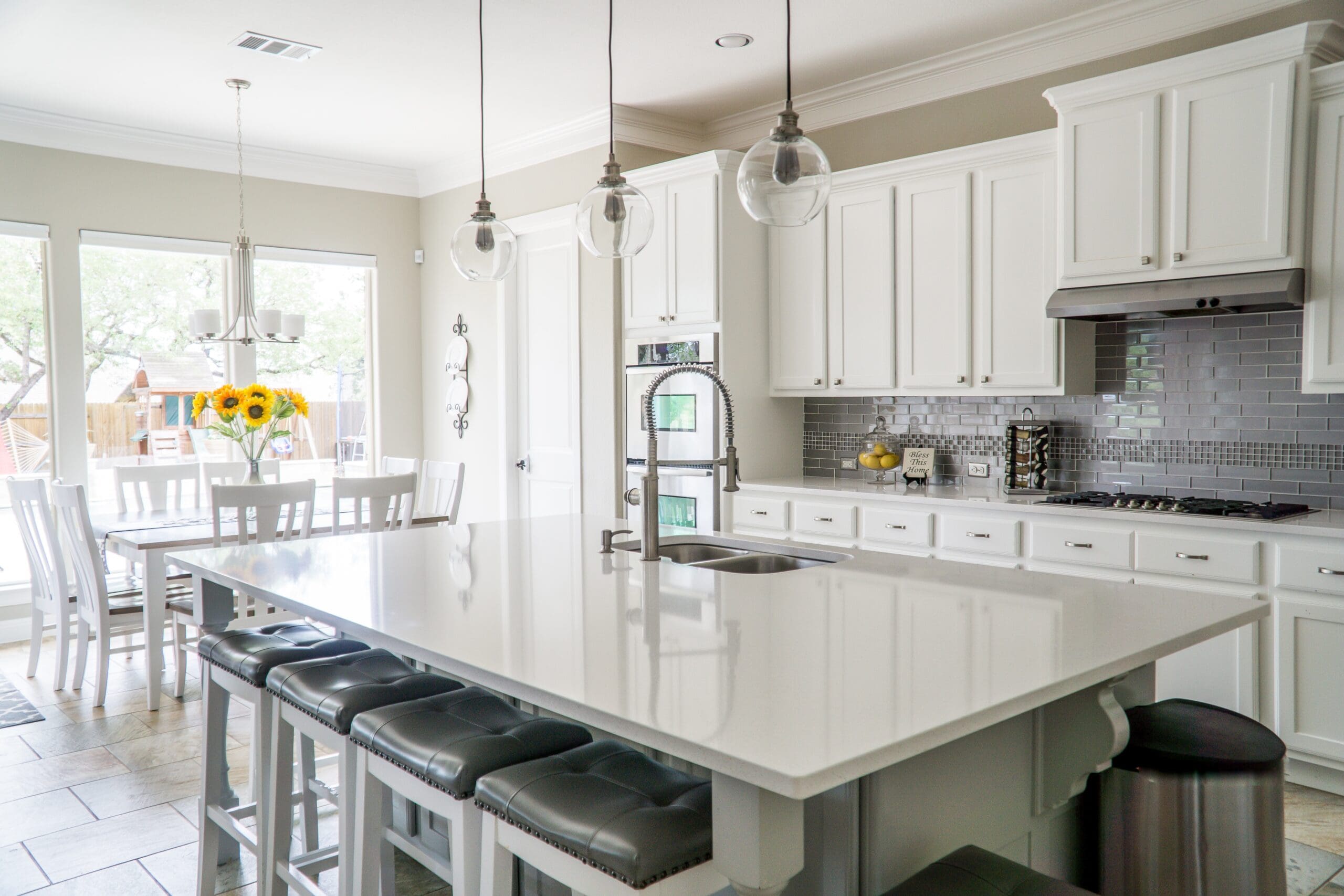Deciding how soon you can sell a house after buying it is a major decision influenced by financial, personal, and market-driven factors. One of the most important questions to consider is: How long should you live in a house before selling? Financially, most experts recommend staying in your home for at least five years to build equity and offset transaction costs.
While there’s no one-size-fits-all answer, understanding the potential benefits of staying longer can help you make a smarter, more informed choice. Whether you’re selling in Roswell or Summerville, this Redfin article offers expert guidance on choosing the right time to sell.
In this article:
Reasons you may need to sell your home
How long should you live in your home before selling?
The five-year rule
How waiting to sell can maximize your home’s value: A $400,000 example
How to estimate your home sale proceeds
Options to avoid selling early
How soon can you sell a house after buying it: Final thoughts
How long should you live in a house before selling FAQs
Reasons you may need to sell your home
Deciding when to sell a home is a big financial decision, but for many, it doesn’t just come down to dollars and cents.
More often, homeowners consider selling their home due to life circumstances, such as:
- A new job or relocation
- A growing family
- Retirement or downsizing
Regardless of whether your motivation is financial or circumstantial, it’s important to consider how your tenure in a home will impact your personal finances.
How long should you live in your home before selling?
Most financial experts recommend living in a home for at least five years before selling to maximize your return—though staying a minimum of two years helps you qualify for the capital gains tax exemption and gives your equity time to grow, offsetting sale costs.
Arguably, the most important variables to consider before you make the decision to sell are home equity, transaction costs, and local market conditions.
Home equity
Home equity is a term that measures the value of a home to its owner after all debts and liabilities (like a mortgage) have been paid. As a simple example, if a house worth $440,000 has a single liability—a $300,000 mortgage—the equity value would be approximately $140,000 ($440,000 – $300,000).
There are generally three ways to increase your home equity:
- Appreciation: The increase in property values over time due to broad macroeconomic forces.
- Home improvements: Upgrades to a property that increases the resale value of the property.
- Amortization: The gradual paydown of a mortgage through on-time monthly payments.
Generally speaking, the longer you live in a home, the more equity you’re likely to have. And, the more equity you build, the more flexibility you have in deciding how soon you can sell a house after buying it.
Transaction costs
Transaction costs in real estate are the expenses associated with selling or buying a property. These costs can vary depending on the sale price and location of the property. When calculating how soon you can sell a house after buying it, there are three categories of expenses you should consider.
1. Upfront costs
Upfront costs generally describe expenses incurred to make the property ready and optimized for sale. The costs and scope of these upfront costs will vary depending on the type and condition of your property, but some major costs to consider are pre-sale home inspections, making repairs or upgrades, home photography, and staging.
2. Closing costs
Closing costs refer to the fees and expenses associated with finalizing the sale of a home, typically paid at the closing of the transaction. These costs can include both mandatory fees, like title insurance and transfer taxes, and negotiable fees, such as seller concessions, where the seller agrees to contribute toward the buyer’s costs.
For most home sellers, closing costs include real estate agent commissions, which are typically a percentage of the final home sale price and exchanged during the final transaction at closing. Other closing costs will vary by state but often include title insurance, transfer taxes, escrow fees, attorney fees, and seller concessions.
3. Capital gains taxes
Profits from selling a home are taxable, but there are ways to reduce your tax burden. If you own the home for at least a year, gains are taxed as long-term capital gains, which often have lower rates.
Even better, if it’s your primary residence and you’ve lived there for at least two of the past five years, you may be exempt from paying capital gains taxes altogether. So, how long should you live in a house before selling to minimize taxes? At least two years—if you want to maximize your tax savings.

Local market conditions
When there are more buyers than properties for sale on the market, it’s considered a “seller’s market”—where sellers generally have more negotiating power over price and concessions. In a buyer’s market, the opposite is true, and sellers have less leverage in their sales process.
While timing the market perfectly is tough, selling in a seller’s or neutral market can work in your favor. Even if you can’t wait to sell, you should be aware of local market conditions before listing your property to ensure you have appropriate expectations for your sales process.
Use Redfin’s Data Center or connect with a local real estate agent to get a clear picture of your local market. US housing market trends don’t always reflect local conditions, so it’s important to understand what’s happening in your area before deciding when to sell.
The five-year rule
The ideal timeline to sell a home will vary considerably based on your personal financial situation, as well as the characteristics of your home and local market. However, as a rule of thumb, homeowners wanting to maximize financial gains should wait at least five years to sell.
This time frame allows you to build enough equity through appreciation and amortization to offset the transaction costs of selling.
How waiting to sell can maximize your home’s value: A $400,000 example
Using an example of a home purchased for $400,000, we can see how waiting a few years to sell your home has big benefits. For this example, we’ll assume this property is purchased with a 20% down payment, has a 6.75% mortgage rate, and experienced average market appreciation of 3.5% per year.

Although the example assumes steady home value growth, selling within the first two years would still result in a loss. That’s because the homeowner wouldn’t have enough equity from appreciation and loan paydown to cover transaction costs, which could total $35,000 to $40,000.
Fortunately, the numbers get much better after the first two years. In the third year, a home seller would make a modest profit, and the returns look better in each subsequent year.

While this example breaks even after three years, it assumes steady, historically average growth. To play it safe, following the five-year rule can help protect against short-term market fluctuations that might hurt your return.
How to estimate your home sale proceeds
The exact proceeds you will make from selling your home will largely depend on your personal circumstances.
Here’s a quick way to estimate how much you’ll make from selling your home:
- Estimate the current value of your home using Redfin and by talking to a local agent.
- Calculate your home equity. For most homeowners, this can be done by taking the current value of your home and subtracting your mortgage balance.
- Subtract your estimated selling costs.
Example: If your home is worth $360,000 and you owe $215,000 on your mortgage, your home equity should be around $145,000. With sales costs estimated around 8%, you would subtract $28,800 ($360,000 * 8%) from your home equity and get estimated proceeds of $116,200.
Options to avoid selling early
Some second-time homebuyers may face pressure to sell earlier than the recommended five years. If you’re wondering how soon you can sell a house after buying it, consider alternatives like renting out the property or renovating it until the timing makes more financial sense.
Renting your home
Renting out your home can be a great way to build equity and generate income through cash flow. Becoming a housing provider does require some education, but it’s not rocket science.
BiggerPockets has loads of free resources to teach you how to rent out your home and has even put together a free calculator you can use to determine whether selling or renting your home is a better financial decision.
Renovating your home
If you want to move due to life circumstances, like a growing family or need different characteristics in your living space, consider renovating your home instead of selling. Renovations do take some work, money, and time, but can be a great way to build equity in your home and forgo the transaction costs of selling your property.
How soon can you sell a house after buying it: Final thoughts
From a strictly financial perspective, you should plan to live in a house for at least five years, and the longer you wait, the better. Living in a property for a long time allows you to build home equity through appreciation and amortization, offsetting the potential costs of selling your home.
However, this decision is not always purely financial, and homeowners should take their time and educate themselves before making the decision. Research local market conditions, talk to a real estate agent, estimate your sales proceeds, and consider your lifestyle before deciding when to list your home for sale.
How long should you live in a house before selling FAQs
How soon can you sell a house after buying it?
You can technically sell a home at any time, but selling within the first one to two years may result in higher taxes and lower returns. If you sell before two years, you may also miss out on capital gains tax exemptions.
Explore>> Capital Gains and More: Tax Tips for Home Sellers
Is it better to sell or rent out your home if you can’t stay long?
If you’re not ready to sell but won’t be living in the home, renting it out can generate income while giving your property time to appreciate. This can be a smart alternative if you’re trying to avoid selling too soon.
Read>> Selling vs. Renting Out Your House: Which Is Right for You?
What happens if I sell my house too early?
Selling too early could mean losing money due to transaction costs, limited equity, and potential tax penalties. It can also limit your ability to afford your next home or qualify for favorable mortgage terms.
Discover>> Should I Sell My House Now?
What’s the best time of year to sell a house?
Spring and early summer are typically the most active times for home sales, with more buyer demand and often higher prices. However, the best time to sell also depends on your local market conditions and personal financial goals.
Check out>> When is the Best Time to Sell a House?
About BiggerPockets
BiggerPockets is at the forefront of democratizing access to consumer real estate investing education and tools to support investors in achieving their financial goals. Founded in 2004, the platform is a complete, essential resource to a vibrant community of more than 3 million real estate investors, helping them to identify opportunities, find partners, secure deals, and make informed investment decisions. BiggerPockets recently launched PassivePockets, an educational platform dedicated to passive investing. With over 150 million podcast downloads, 3 million books sold, and more than 1.2 million YouTube subscribers, BiggerPockets is dedicated to serving real estate investor beginners, experts, and everyone in between, fostering a collaborative environment where knowledge is shared, and value creation is maximized.


















 English (US) ·
English (US) ·